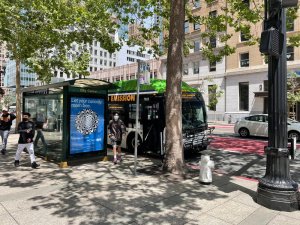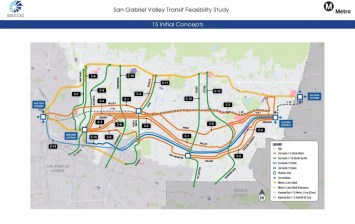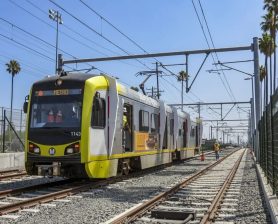L.A. Doesn’t Have the Worst Traffic in the Country
(This article first appeared at Occidental College’s Urban and Environmental Policy Blog.)
This morning I saw a No on 23 yard sign. It read “Stop Texas Oil. Vote No on 23.”
A few minutes ago I came across a recent study by CEOs for Cities that could be summed up as “Stop Texas Sprawl Merchants. Distance matters, not congestion.”
For years, the most frequently cited measure of mobility in urban areas has been the Texas Transportation Institute’s Urban Mobility Report (UMR), which rates metro areas based on how much traffic congestion commuters experience. No surprise, Los Angeles is number one on the list of most congested cities, occupying the top slot 14 out of 15 years that the study has been published.

I had referenced this report myself without looking into their methodology.
CEO’s for Cities new report Driven Apart makes the great point that the Texas Transportation Institute’s main ranking scale, their travel time index, ignores distance and time, fixating instead on congestion. To see how, imagine two cities. In City A, the average commuter lives close to where they work, driving ten minutes, five of which is spent stuck in traffic at rush hour. In city B, the average commuter lives far out in the exurbs, driving 100 minutes, five of which is spent stuck in rush hour delays. Using the travel time index, which is drive time in a congested period divided by drive time in a non-congested period, City A gets a rating of 2, much higher/worse than the ‘worst’ real world American city (L.A at 1.49) and City B gets a rating of 1.05, significantly better than than real world big city average of 1.25.
But who in their right mind thinks that driving almost two hours each way represents a better traffic scenario than driving ten minutes each way?
This fixation on congestion rather than distance and time matters because it leads to perverse policy recommendations: spend money increasing capacity (building/ widening roads) to reduce congestion. What cities should be doing is using land use rules and mobility policies to enable people to live near they want/ need to go.
We should be fighting sprawl, not encouraging it. Oh, and Texans, Los Angeles has the 17th worst traffic in the nation (time spent commuting), not the worst. Please don’t mess with it (or our clean air laws!)



